Artificial Intelligence (AI) is revolutionizing the music industry, reshaping how music is composed, produced, and distributed. From generating melodies to personalizing playlists, AI is not just a tool but a creative partner for musicians and producers. This blog explores how AI is transforming the music landscape, its benefits, challenges, and what the future holds for this exciting intersection of technology and art.
The Role of AI in Music Composition
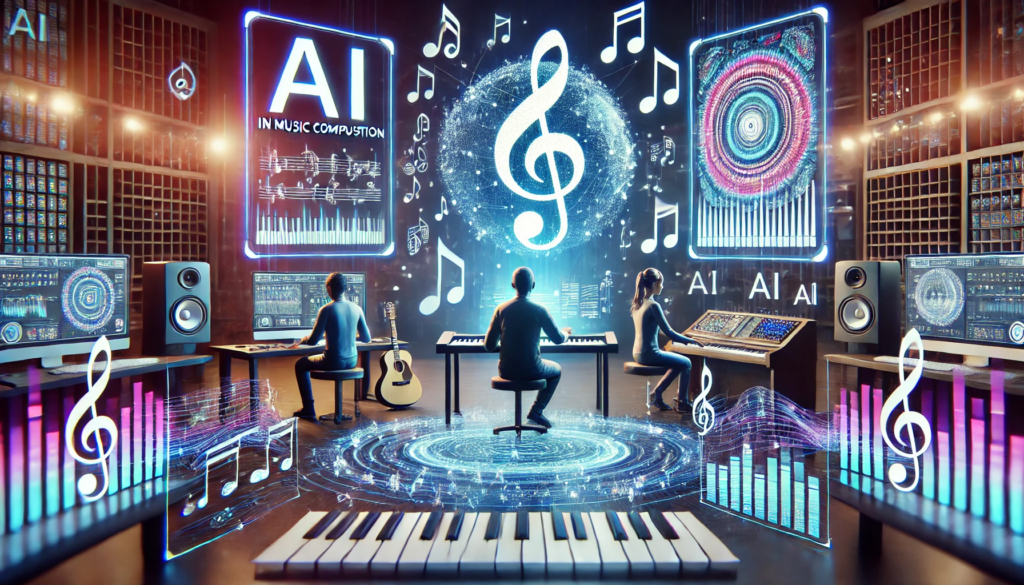
AI has introduced groundbreaking changes in music composition, enabling artists to push creative boundaries. Here’s how:
1. Generative AI Tools
AI-powered tools like OpenAI’s MuseNet and Google’s Magenta can compose music in various genres, from classical to pop. These tools analyze vast datasets of music to generate melodies, harmonies, and rhythms, offering musicians a foundation to build upon.
2. Overcoming Creative Blocks
AI tools can suggest chord progressions, melodies, and even lyrics, helping artists overcome creative blocks. For instance, platforms like AIVA (Artificial Intelligence Virtual Artist) assist in creating orchestral compositions for films and games.
3. Collaborative Creativity
AI acts as a co-creator, allowing musicians to input their ideas and refine AI-generated suggestions. This collaboration results in unique compositions that blend human emotion with AI precision.
AI in Music Production
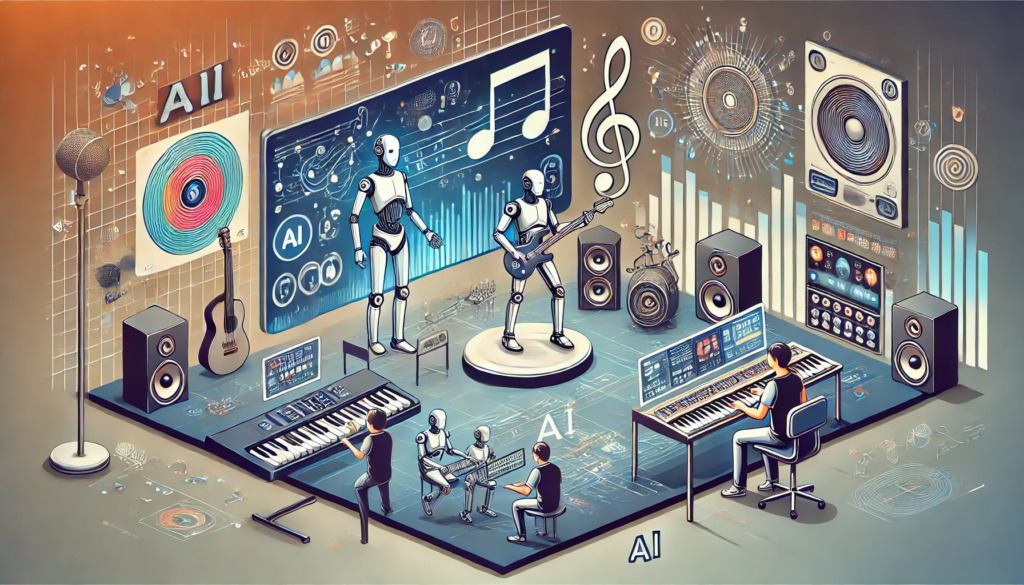
AI is streamlining music production, making it more efficient and accessible:
1. Mixing and Mastering
AI-driven plugins like LANDR and iZotope assist in mixing and mastering tracks, ensuring professional-quality sound with minimal effort.
2. Personalized Sound Design
AI tools can generate custom sounds and effects tailored to specific genres or moods, enabling producers to experiment with new sonic landscapes.
3. Automation of Repetitive Tasks
From beat matching to vocal tuning, AI automates time-consuming tasks, allowing producers to focus on creativity.
Transforming Music Distribution

AI is not only changing how music is created but also how it reaches audiences:
1. Personalized Playlists
Streaming platforms like Spotify and Apple Music use AI algorithms to curate playlists based on user preferences, enhancing music discovery.
2. Predictive Analytics
AI analyzes listener data to predict trends and recommend tracks, helping artists and labels target their audience more effectively.
3. Blockchain Integration
AI combined with blockchain technology ensures fair royalty distribution and transparent rights management, addressing long-standing issues in the music industry.
Benefits of AI in Music
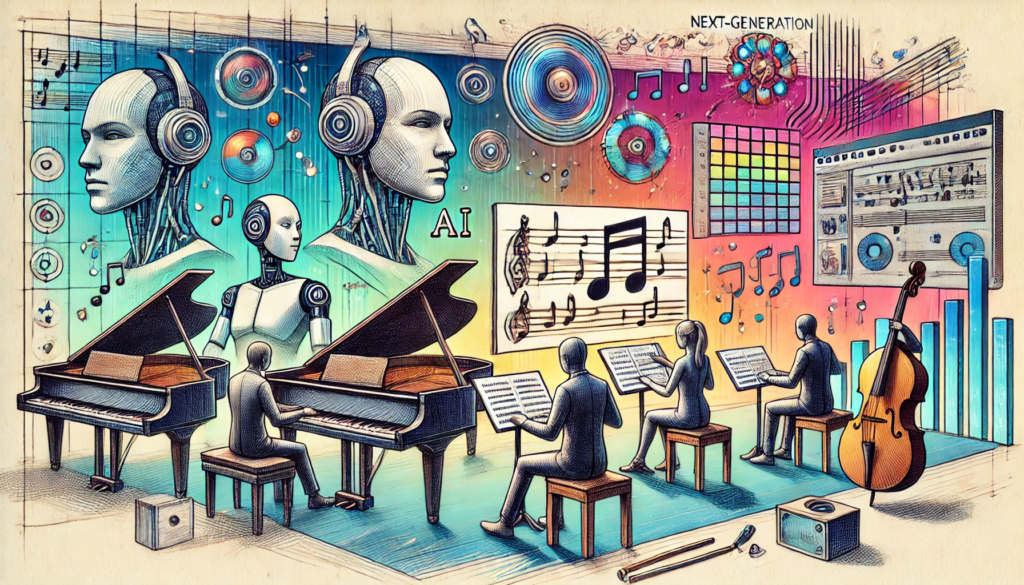
- Accessibility: AI democratizes music creation, enabling anyone to compose and produce music without formal training.
- Efficiency: AI speeds up the creative process, reducing production time and costs.
- Innovation: AI introduces new possibilities for experimentation, pushing the boundaries of traditional music.
Challenges and Ethical Considerations
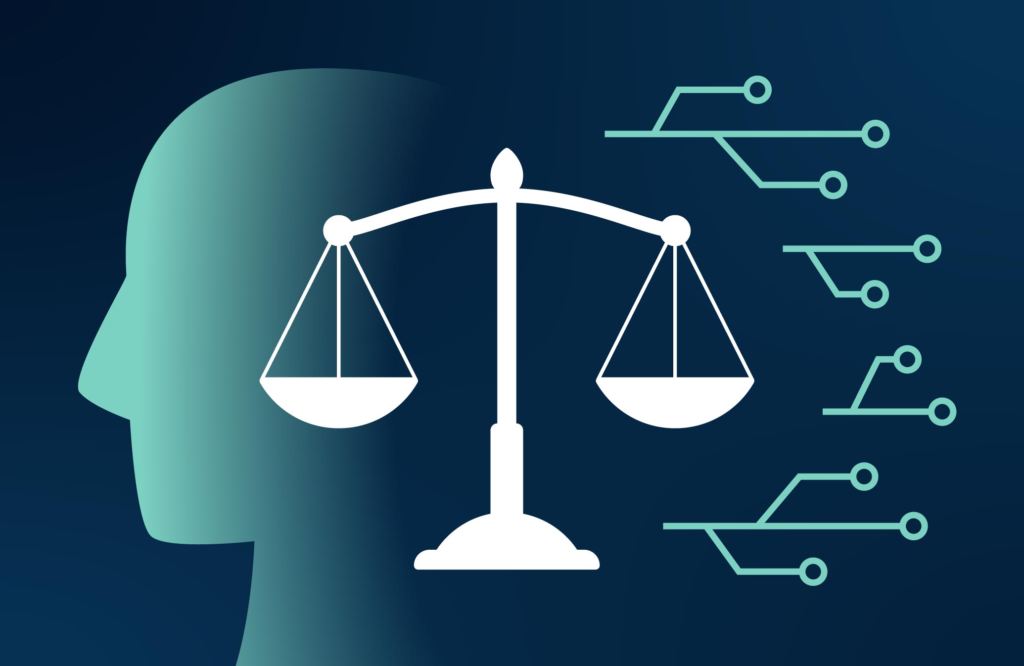
While AI offers numerous benefits, it also raises important questions:
- Authorship and Ownership: Who owns the rights to AI-generated music—the artist, the programmer, or the AI itself?
- Originality: Can AI-generated music truly be considered original, or is it derivative of existing works?
- Impact on Jobs: As AI automates tasks, what does this mean for traditional roles in the music industry?
The Future of AI in Music
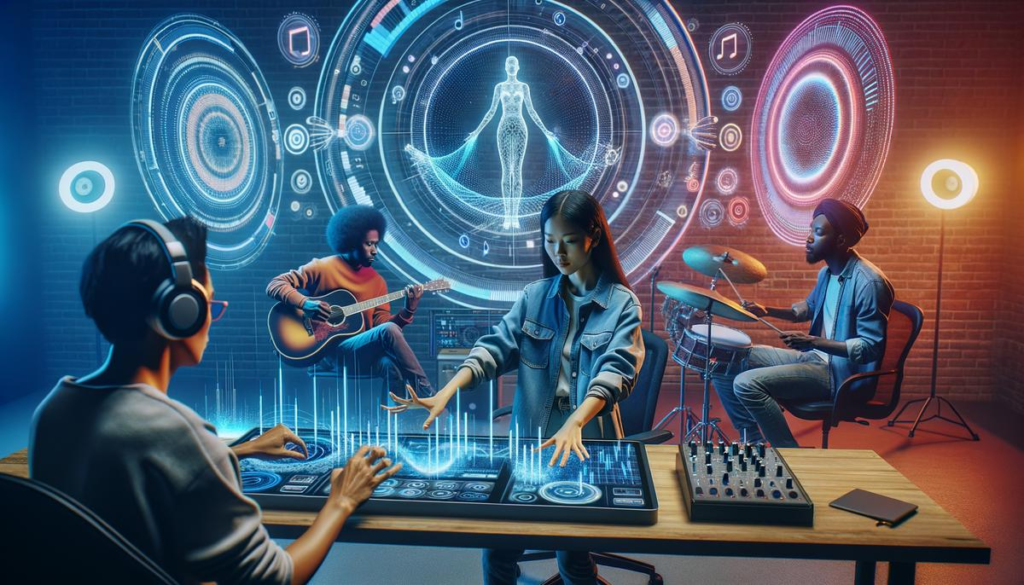
The future of AI in music is bright, with exciting possibilities on the horizon:
- Immersive Experiences: AI will play a key role in creating interactive and personalized live music experiences using VR and AR.
- Algorithmic DJs: AI-powered DJs will curate real-time playlists based on audience mood and preferences.
- Global Collaboration: AI will enable artists from different parts of the world to collaborate seamlessly, breaking down cultural and geographical barriers.
Conclusion
AI is not replacing human creativity but enhancing it, offering tools and opportunities that were once unimaginable. As we embrace this technological revolution, the music industry is set to become more inclusive, innovative, and dynamic. Whether you’re an artist, producer, or listener, AI is shaping a future where music knows no limits.
Read this Next:
1 Future of Electric Vehicles: The Best innovations and Discoveries
2 The Future of Renewable Energy: Solar, wind, and beyond.
3 Digital Detox: How to unplug and reconnect with the real world.
4 The Minimalism: Living with less in a consumer-driven world
5 The Gig Economy: Opportunities and challenges for freelancers.

© YourCoinBlox. Not to be reproduced without perm

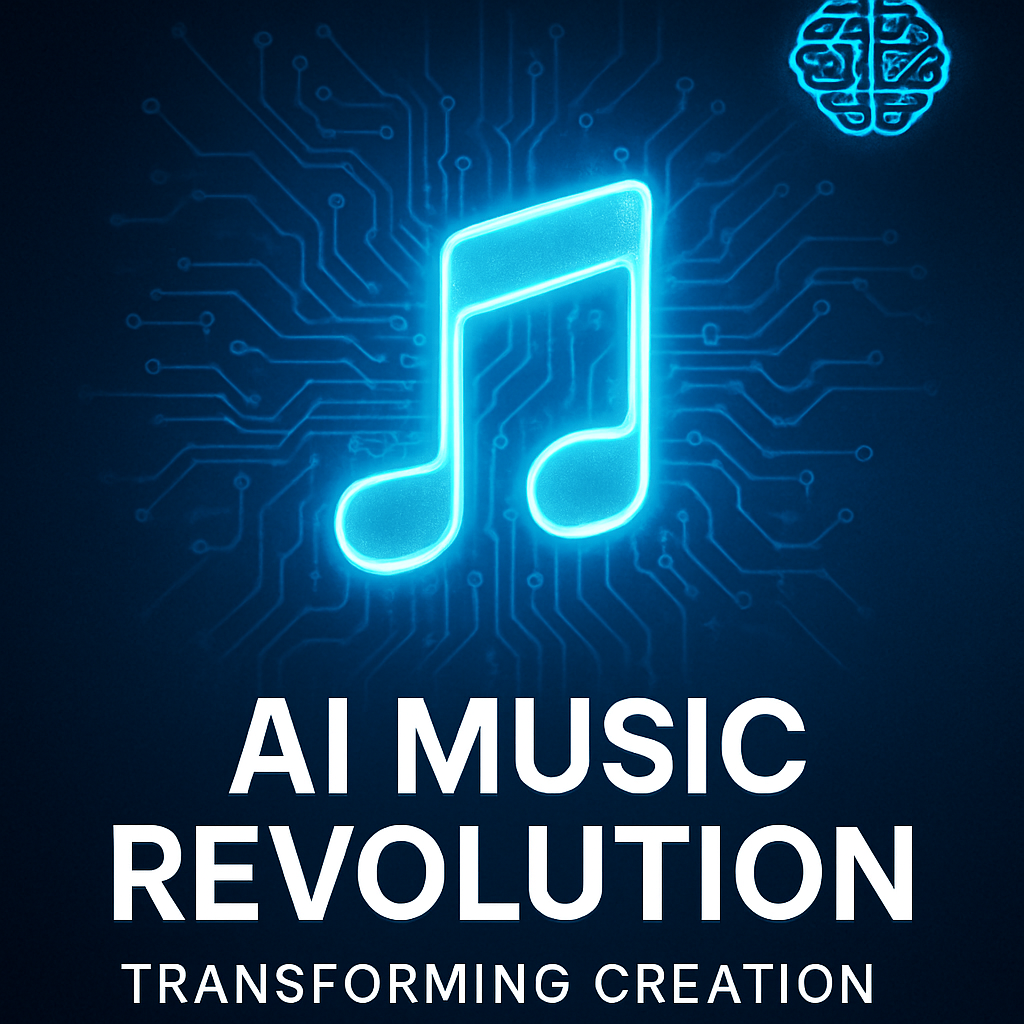
3 thoughts on “AI Music: How It’s Changing Composition and Distribution for Better”
hm88com is awesome! I love the different games they have. Depositing and withdrawing money is simple too, which is a big plus. Take a look at hm88com – you won’t regret it!
Downloading gogamebetdownload was easy. Game’s not bad either, worth the install. Check it gogamebetdownload.
Okay, megafishingvn looks like a blast! Who doesn’t love shooting fish for prizes? The graphics are pretty good too. Going to give this a whirl! Check it out megafishingvn.